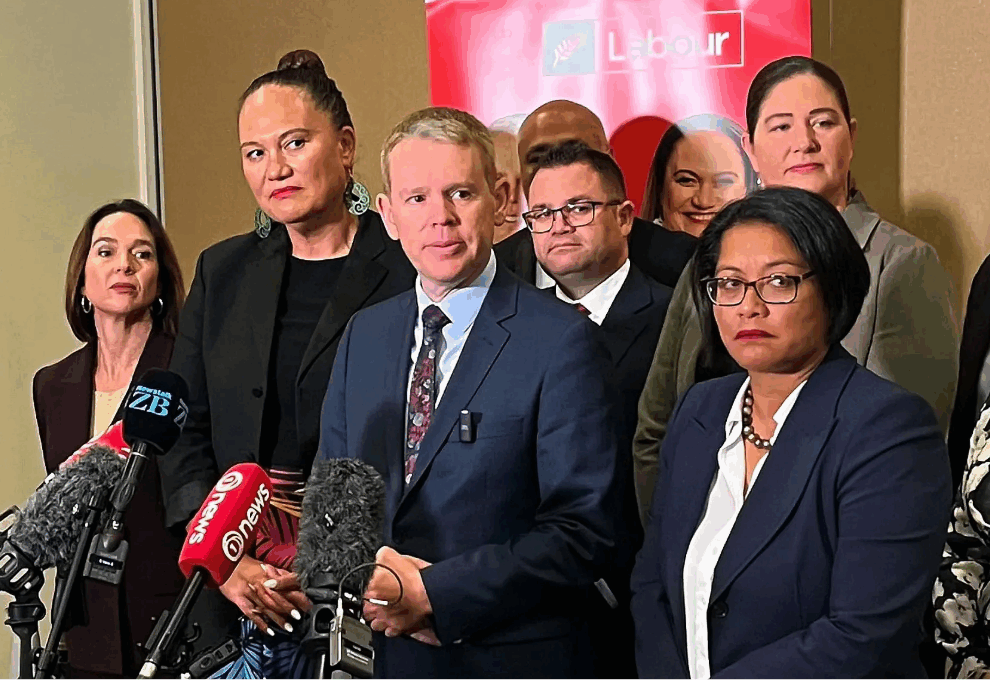When Chris Hipkins unveiled Labour’s new idea, a targeted capital gains tax on property investors to fund three free doctor visits for every New Zealander, he was not just talking policy. He was staging theatre. On one side of the stage stood the country’s landlords, caricatured as profiteers of an overheated market. On the other side, sick Kiwis waiting for healthcare. It is a neat moral arc: punish the sinner, sanctify the saint.
The problem is that economics rarely bends to dramaturgy. The tax base and the spend do not match, and investors know it. You cannot simply tie an unpredictable revenue stream to a politically sacred expenditure line and call it good government. Capital gains tax receipts, particularly when pinned to property cycles, rise and fall with the market. The same volatility that frustrates investors also undermines the promise of stable healthcare funding. In lean years, when transaction volumes fall, how many of those “guaranteed” doctor visits evaporate?
The deeper contradiction is buried in Labour’s own talking points. Hipkins has spent months urging that investment be directed away from property speculation and toward more productive sectors. Yet the more successful that redirection, the smaller the capital gains tax take. The policy creates a paradox: either it fails and raises revenue, or it succeeds and starves itself. It reads better in a press release than on a balance sheet.
Tax Settings That Work for Everyone
From investors’ perspective, the concern is not taxation itself. Investors understand that fairer taxation is part of a functioning system. Few would object to a framework that balances revenue needs with economic stability. The concern is the habit of governments to single out one group as the villain of the piece. Targeted taxation, especially when wrapped in moral language, creates resentment, distorts incentives, and undermines the very investment needed to improve tenants’ living conditions.
The irony is that property investment, when structured properly, is precisely where New Zealand could drive meaningful gains for tenants. A depreciation allowance for improvements that are materially linked to living standards such as insulation, ventilation and heating would nudge capital in the right direction. Instead of punishing investors with symbolic levies, policy should reward investment in healthier homes. The result would be tax settings that are stable, targeted and tied directly to the policy objective of improving lives.
A Better Script
What New Zealanders need is less theatre and more craft. Healthcare funding requires broad, dependable revenue sources such as GST, income tax, or a genuine comprehensive capital gains framework that is not shackled to one sector. Housing reform requires tools that encourage investment in better quality rentals, not discourage it.
“We cannot afford political jazz hands,” says APIA General Manager Sarina Gibbon. “The investor community wants to see durable policy, not symbolic gestures. We are eager to work with all political parties in the lead up to the election to identify the right tax levers that will genuinely shift market behaviour. That means encouraging improvements to tenant living conditions and keeping rent at a standard that families can actually afford.”
The Curtain Call
A targeted capital gains tax tied to free doctor visits is not so much policy as it is performance. It makes for a compelling headline but a fragile balance sheet. If the goal is healthier New Zealanders and better homes, then the tax system must move past symbolism and toward substance. The investor community stands ready to engage on that basis: open to reform, supportive of fairness, and focused on outcomes that lift the living conditions of tenants.












Add Comment